5 Best Automated AI Essay Grader Software in 2025
Grade essays more easily with the most reliable grading software
8 min. read
Updated on
Read our disclosure page to find out how can you help Windows Report sustain the editorial team. Read more
Key notes
- Use automated essay grading software to save time and improve accuracy.
- With specialized tools, you can analyze fluency, diction, grammar, and other essential aspects.

In the past, the only way to grade a paper or an essay was to take every sheet of paper and analyze it from top to bottom while making notes and correcting mistakes.
This is a highly inefficient way to deal with this task, but as computer intelligence is rapidly evolving, we now have a great range of AI essay graders with an ever-greater range of features.
AI essay grading makes it easier for teachers to focus on other essential tutoring aspects and provides them with an efficient way to grade essays.
Is there an AI that can grade essays?
Artificial Intelligence can read essays and offer a grade based on a system with a predetermined grading scale.
This engine is present within automated essay grading software and can successfully analyze fluency, diction, grammar, construction, and other important aspects and make calculations to obtain valid results.
So, the answer is yes. There are many AIs for grading papers, and they are improving. Here are some great choices.
What are the best AI essay graders?
Project Essay Grade (PEG) – Natural language processing
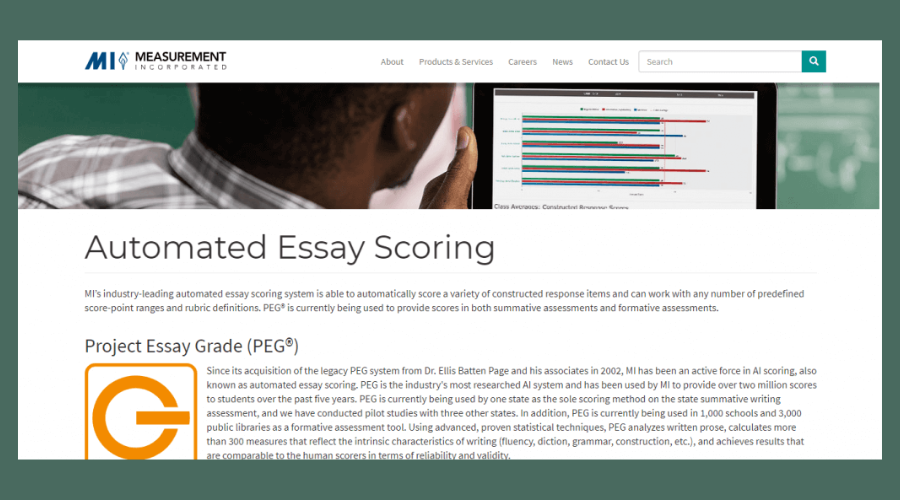
Project Essay Grade by Measurement Incorporated (MI), is a great automated grading software that uses AI technology to read, understand, process and give you results.
By the use of the advanced statistical techniques found in this software, PEG can analyze written prose, make calculations based on more than 300 measurements (fluency, diction, grammar, construction, etc.), and obtain results that look very similar to what a human analyzer would get – reliability and validity.
PEG also incorporates some of the latest leading technologies in areas like natural language processing, and semantic and syntactic analysis to offer you fully automated grading without seeming that a computer does it.
As in the case of most automated grading software, PEG uses a set of essays that humans corrected as a base of information. Starting from this base of information, PEG can use its artificial intelligence and assess how the essay was written automatically.
After the process of analysis is completed, PEG uses the data obtained to create statistical and linguistic models. The models obtained will be used by the AI, to understand better the text written in the paper.
Project Essay Grade released different versions of this software to better suit specific situations :
PEG Writing is an online learning environment that also allows students to improve their essay-writing skills by the use of practice and guided support, and can also be used to grade your own papers before actually sending them to your teacher.
Key features:
- Can submit responses 24/7 to different prompts at school or home
- After checking your paper, you get instant feedback with recommended activities
- Graphic organizers
- Interactive tutorials
- Student portfolios – allows you to keep tabs on your own progress
- Can exchange feedback with classmates by using peer review
- Customization options – accessibility, font size, background color, etc.
- Provides students feedback on the Six Traits of Writing
Teachers can also use PEG Writing to track each student’s progress, allowing them to focus on students’ individual needs. There is a good range of features offered by PEG Writing for teachers.
Here are some of them:
- Wide range of built-in writing prompts
- Create new writing prompts – custom prompts with or without stimulus
- Easily assign tutorial exercises based on the needs of each student or classroom type
- Personalized feedback – virtual sticky notes, text/chat
- Peer editing tool – students can give and receive feedback
- Can grade essays and offer text evident
- Easy to track the progress of your students
- Student enrollment manager
- Built-in writing prompts
PEG Writing Scholar
This version of PEG was designed for higher education and it allows students to submit their essays and get instant feedback.
One of the best features of this version of PEG is the fact that students can get feedback based on the Six traits of Writing, and is also available anywhere and anytime because it uses the incorporated artificial intelligence technology. This app helps adult learners develop their writing skills.
Some key features:
- Peer review – improves student collaboration
- Graphic organizers
- Automatic and manual feedback features
- Built-in custom prompts – can be used as benchmarks to evaluate your student’s writing skills
- Revision tools – allows students to verify their essay drafts independently
Essay Marking Software – Custom marking rules
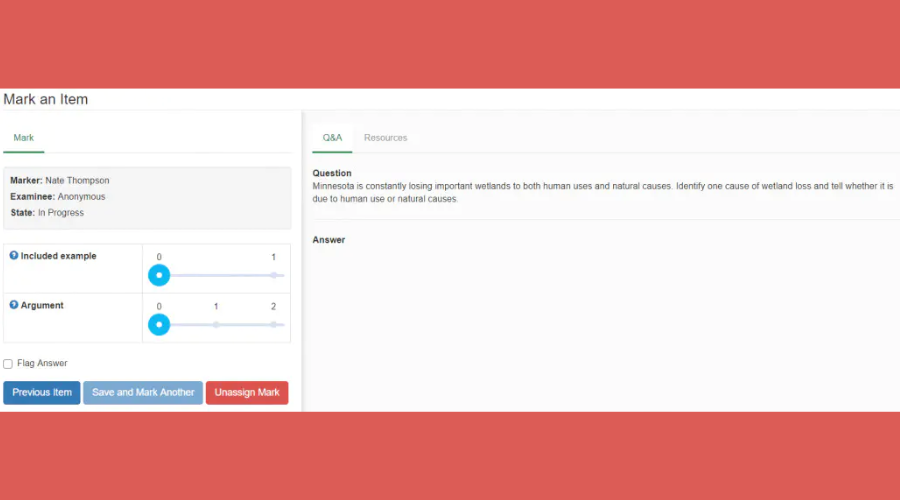
Essay Marking Software is a high-quality automated grading program with custom rubrics and scoring guidelines, and other advanced features.
You can establish custom marking rules, such as anonymity and adjudication, manage significant teams of markers, and obtain results.
This tool simplifies the grading procedure by allowing its users to log in and simply score the student essays on various rubrics, driving quality assessment, and feedback as well.
Moreover, with Essay Marking Software, you can configure the scoring rules to be seen by a specific part of students or have the whole team anonymized and randomized.
Other key features include:
- Tag rubrics to items
- Manage users
- Intuitive usage
- Interesting design
ETS e-Rater Scoring Engine – Preposition selection
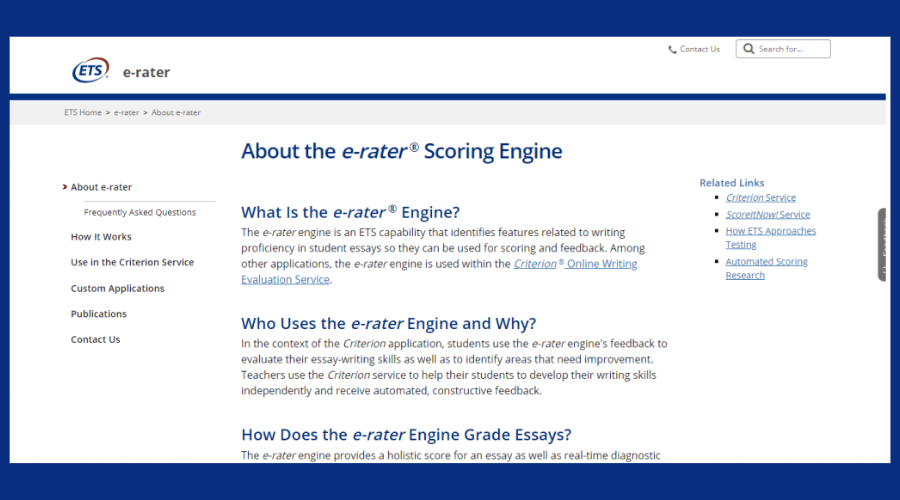
This application is an automated writing evaluation engine that can easily automate the evaluation of your essays.
This software uses a combination between human raters and Artificial Intelligence capabilities to offer fast and clear results.
This tool can also be used in a variety of learning contexts, such as in classrooms and presentations. It can be used to generate individualized feedback or can be used to batch process the essays your students presented.
Key features of e-Rater include:
- Can find grammar errors
- Preposition selection
- Mechanics automated capitalization
- Can analyze the style of text based on how many times a word is repeated
- Can analyze the discourse structure – thesis statement, main points, etc.
- Vocabulary usage features – analyzes the sophistication of the writers’ vocabulary
- Can analyze the sentence variety and source use
- Automatic detection of off-topic responses
- Different writing tasks with lab reports
IntelliMetric – Virtually instantaneous scoring

IntelliMetric is another great AI-based essay-grading tool with written prompts scoring capabilities regardless of the writing degree.
You can drastically reduce the time needed to evaluate student and professional writing without compromising accuracy.
Moreover, IntelliMetric helps you improve time management by authorizing numerous writing prompt submissions with exhaustive adaptive feedback.
Another worth-mentioning detail is the software’s Legitimacy feature that detects, flags, and dismisses submissions if they are irrelevant, inappropriate, or contain harmful notes.
Other key features include:
- Immediate feedback
- Multi-purpose
- Complete details
- Professional-looking design
Knowledge Analysis Technologies (KAT) – Speech analyzer
KAT is another great automated essay-grading software that is based on decades of research. This application can produce consistent and accurate automated results and easily integrate with a wide range of third-party services.
Inside KAT, you will find the Latent Semantic Analysis (LSA) feature, which allows you to compare semantic similarities between words, passages, or even larger texts.
Another great feature of the KAT system is the Intelligent Essay Assessor (IEA). This is an internet-based tool that uses the KAT’s powerful engine to automatically evaluate the meaning of the text, grammar, style, and also the mechanics of your text structure.
IEA can also be used in tests with many constructed responses, offering results at the level of professional human scorers.
The powerful KAT engine analyzes your essay using a combination of both LSA and IEA features. LSA can be used in automatic speech recognition, and computational linguistics, and IEA can be used to evaluate essays and other mechanical aspects of writing.
Some other key features that can be found in the Knowledge Analysis Technologies engine from Pearson include:
- RMM (Reading Maturity Metric) – automatically evaluates the reading level of your essay
- Versant Technology – can analyze speech in order to differentiate between native and non-native speakers
⇒ Get Knowledge Analysis Technologies
In this article, we explored some of the best-automated essay-grading software on the market in 2023. This list covers a wide range of needs and can be very helpful for both teachers and students.
Students can use this type of software to correct any mistakes before sending the essays to their teachers, and the teachers can focus on more important tasks like student engagement.
Onto more tools that can help students, SciSpace Copilot helps you unpack complex research papers into simpler terms, so be sure to check that out too.
With the help of this type of automated software, it is easier than ever to correct a large number of papers, check for any possible plagiarism issues, and offer a good overview of all the completed tasks.
What software option did you choose from this list and why? Please let us know in the comment section below.
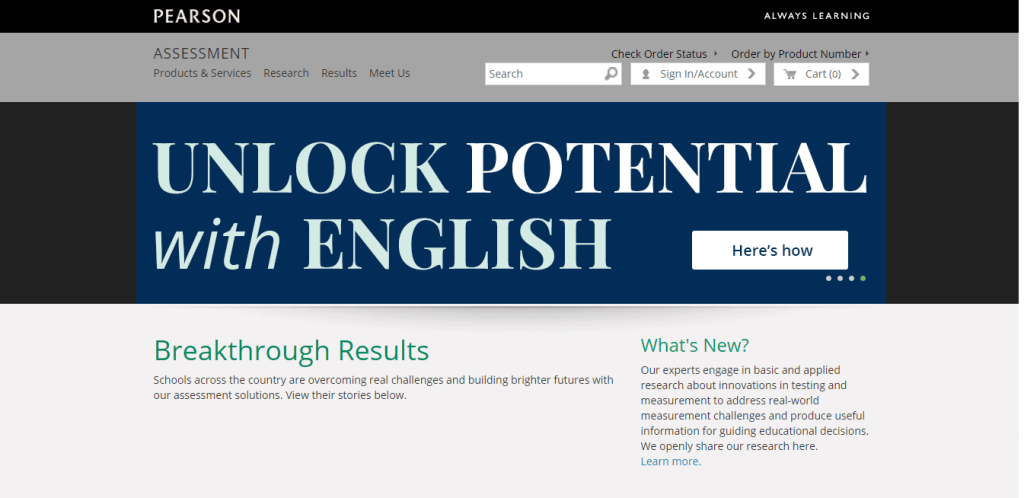

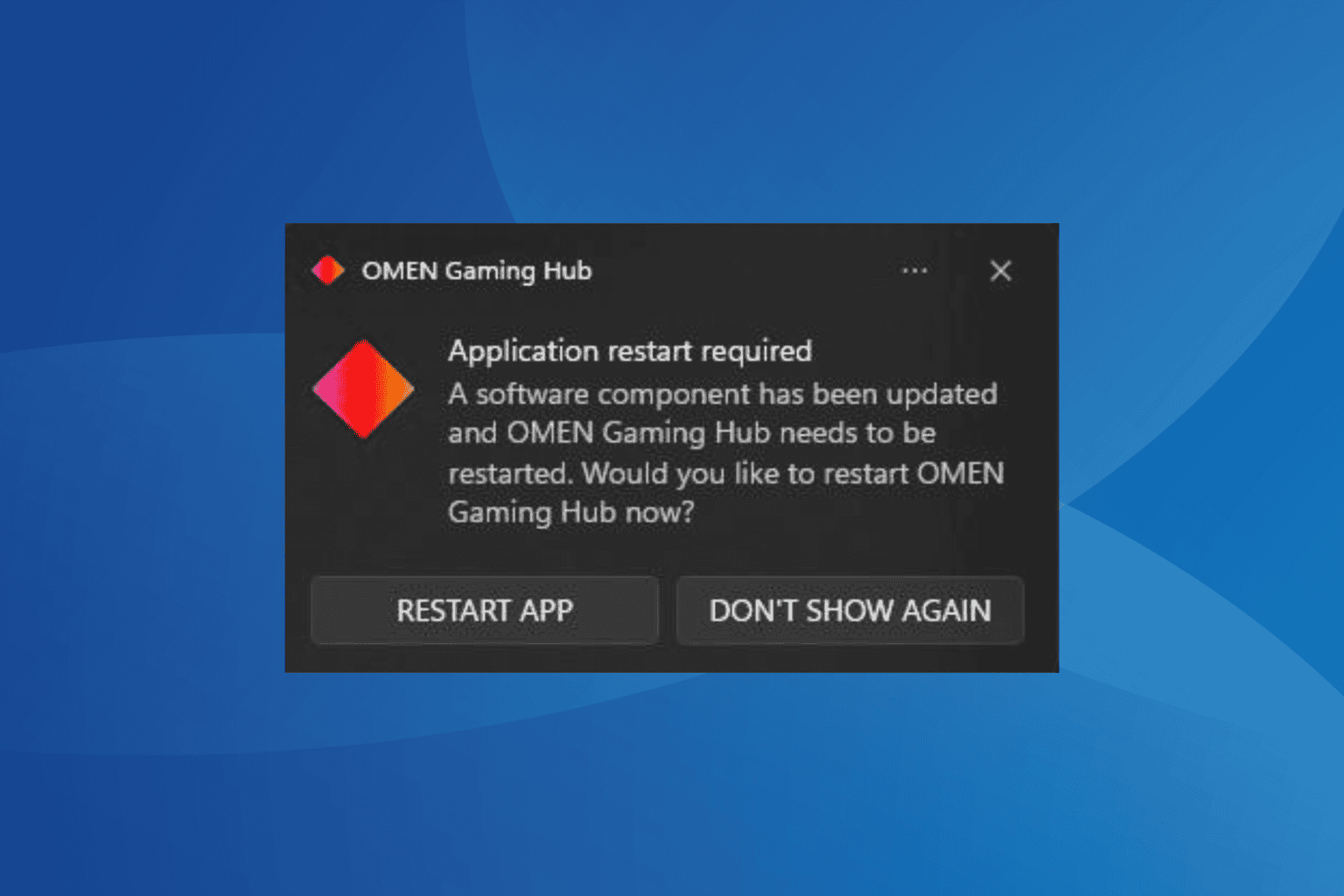
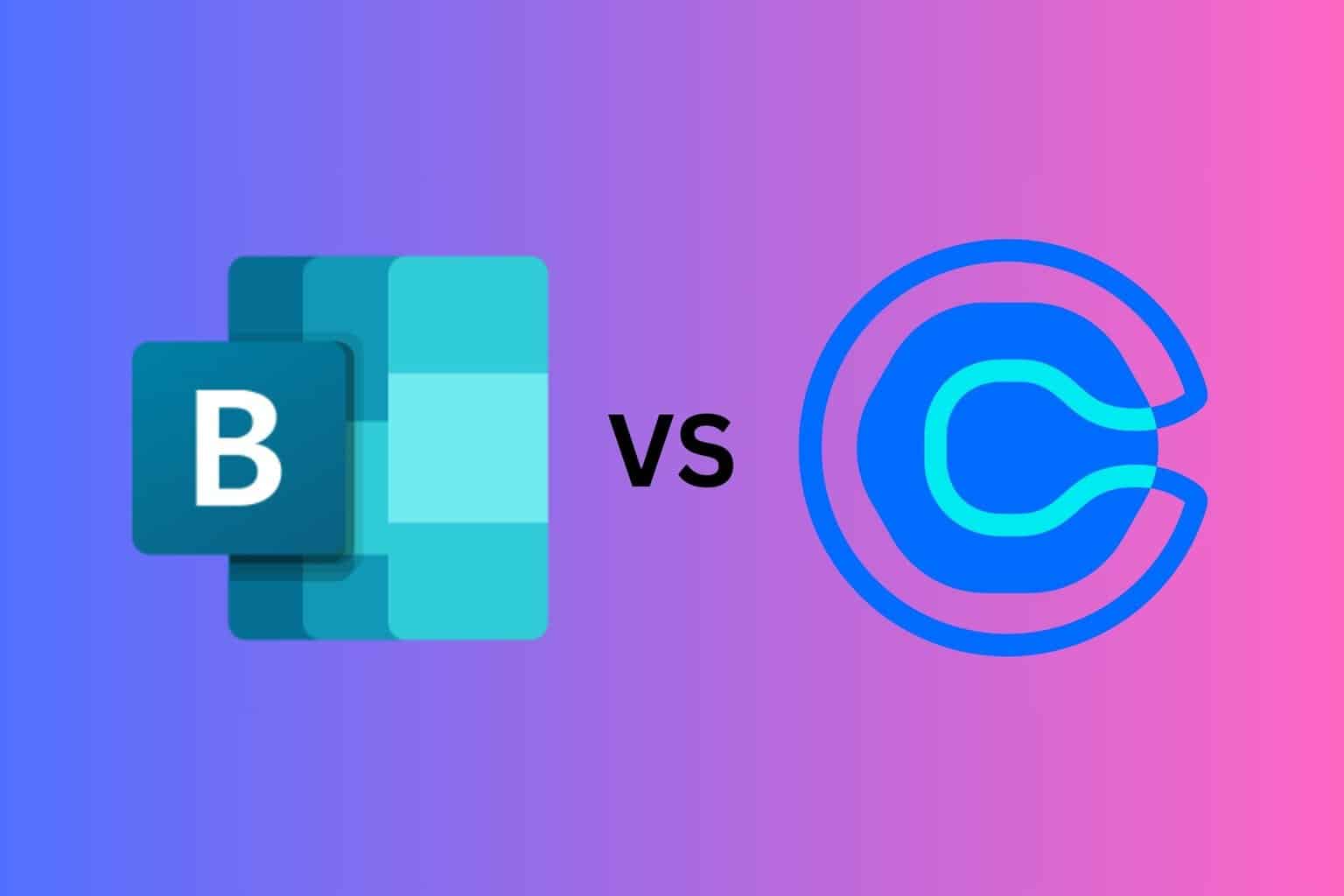
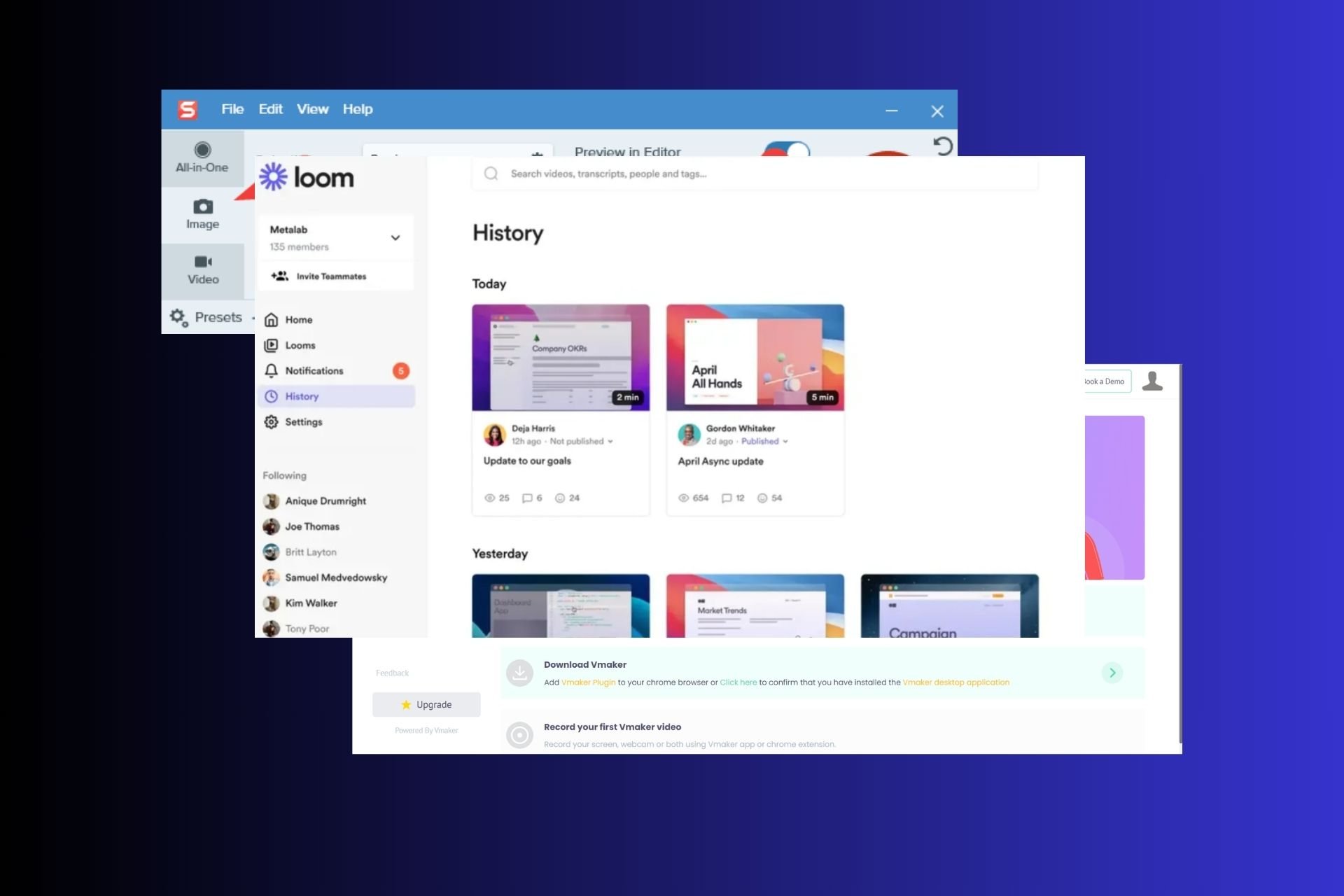
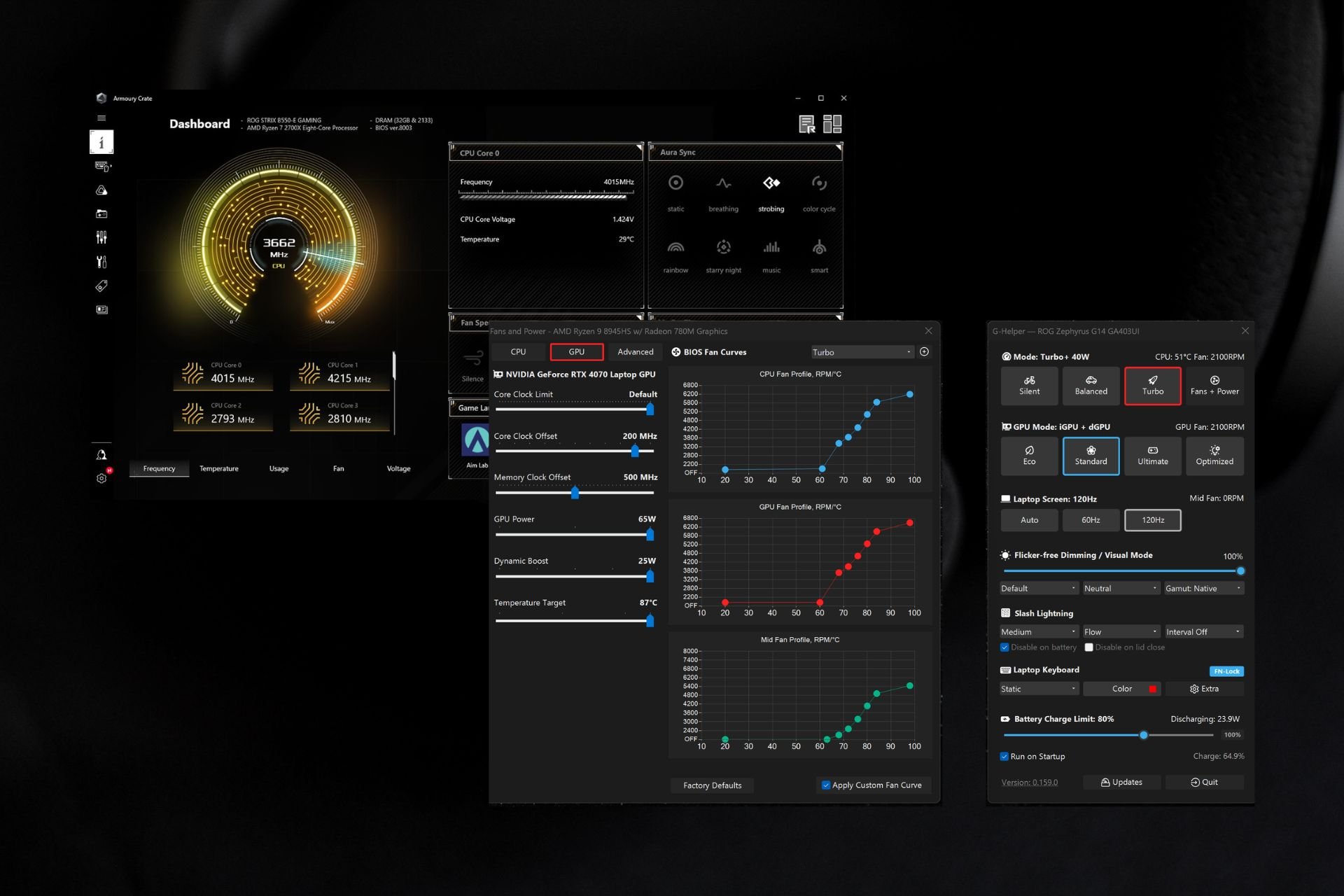
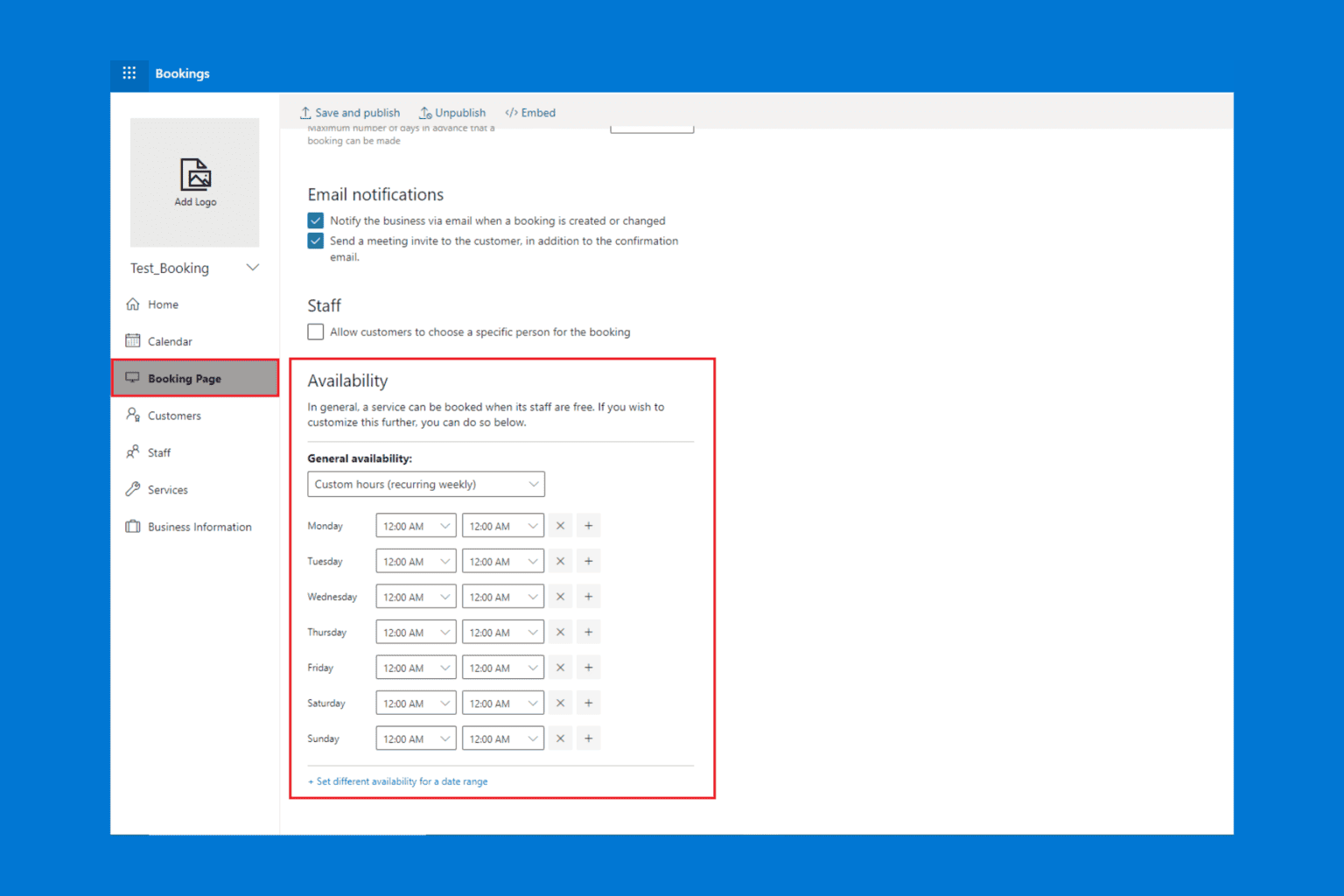
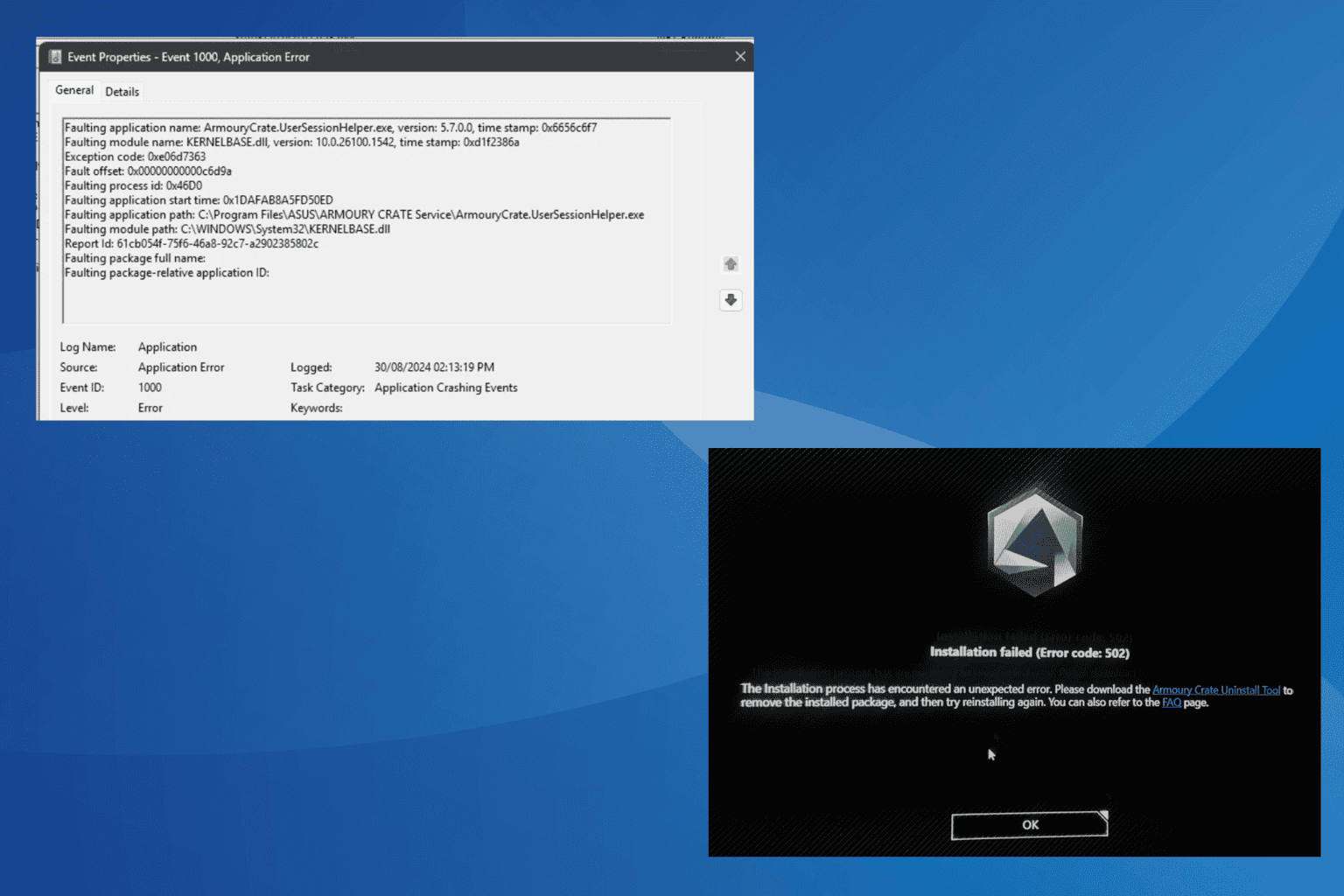
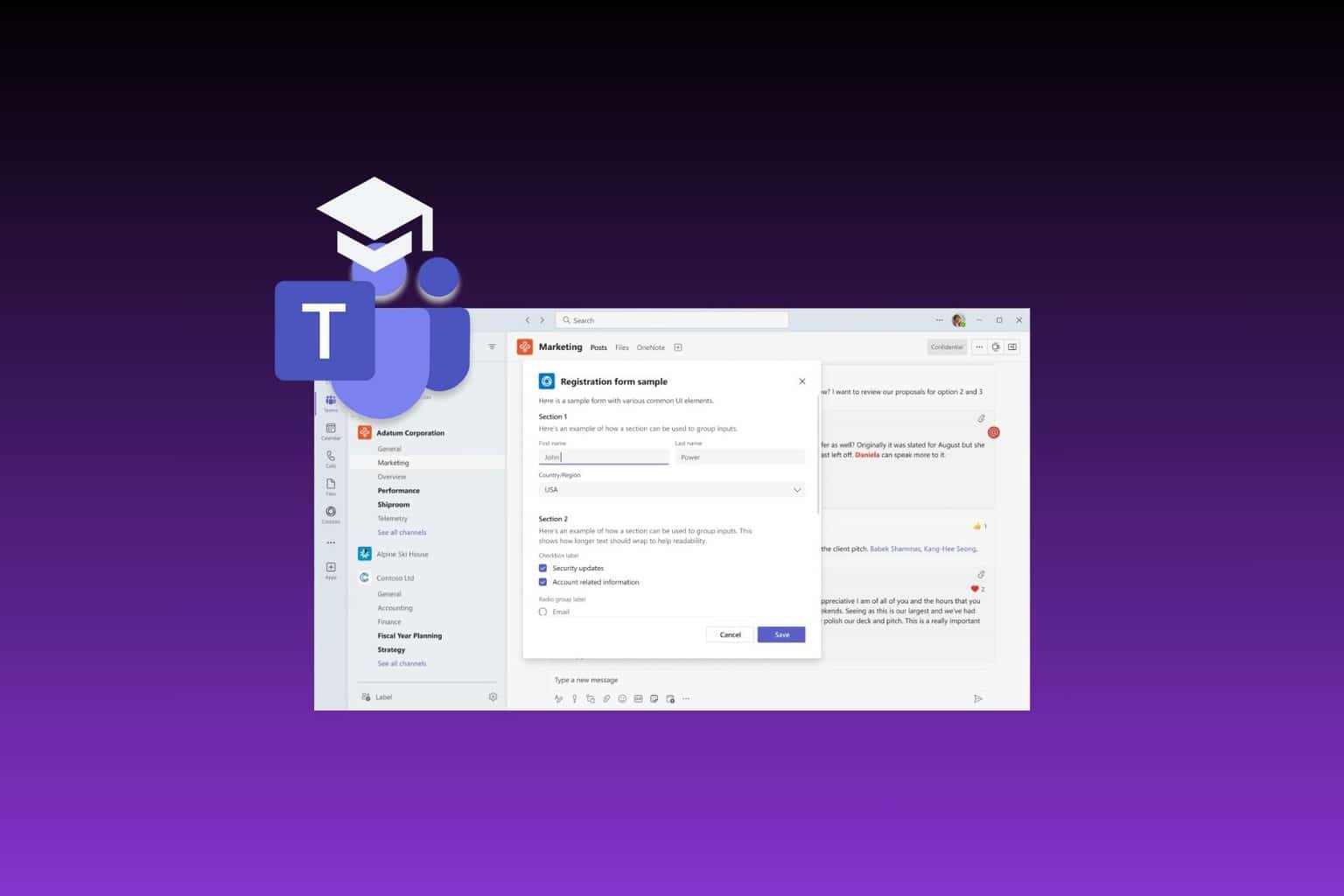
User forum
0 messages